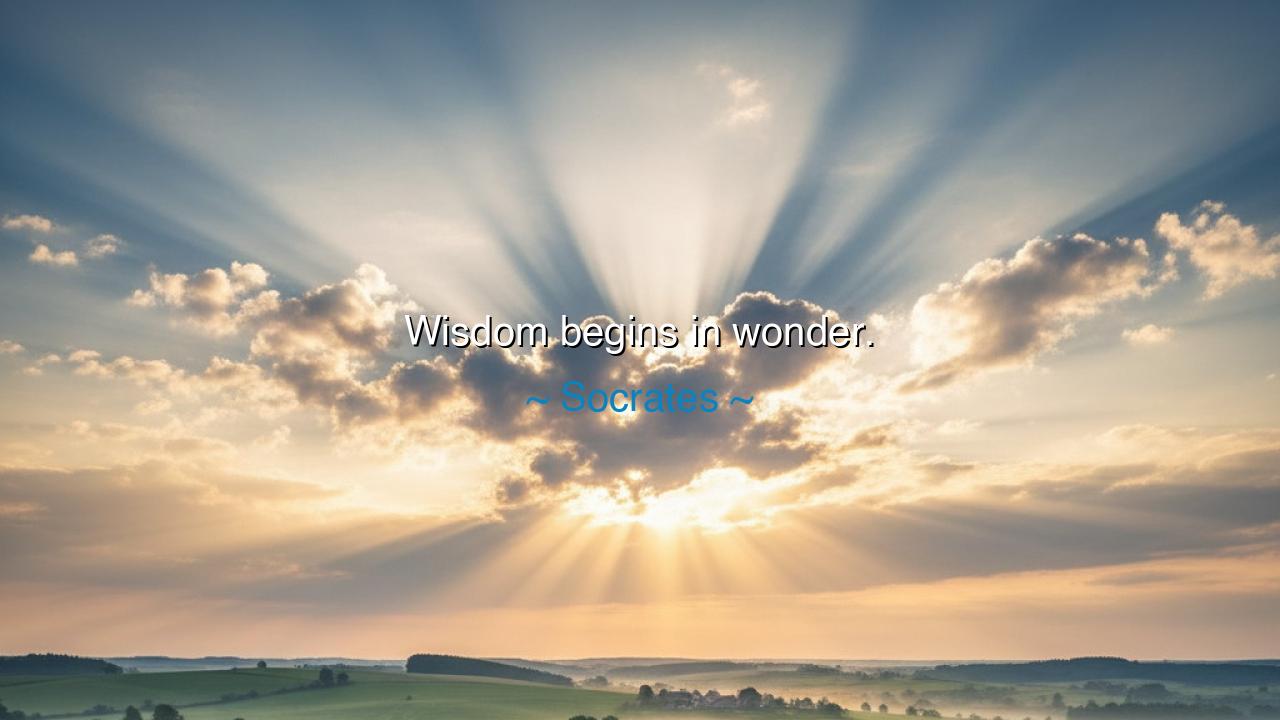
Wisdom begins in wonder.






Wisdom does not spring forth fully formed like a weapon from the forge; it begins as a fragile spark in the heart. When Socrates, the ancient philosopher of Athens, declared, “Wisdom begins in wonder,” he revealed the origin of knowledge. Wonder is the first stirring of the soul, the moment when a person looks upon the world with open eyes and asks, “Why is this so?” Without wonder, there is no questioning; without questioning, there is no discovery. It is curiosity that cracks open the door to understanding, and through that door, wisdom walks in.
Socrates lived during an age of great thinkers, warriors, and statesmen, yet he saw that many men, though powerful, lived in ignorance. They claimed to know the truth, yet they never examined their own beliefs. For Socrates, the first step toward true wisdom was humility, the ability to admit, “I do not know.” This humble acknowledgment awakens wonder, for only the one who feels awe before the mysteries of life can begin to seek answers. Thus, wonder is both the seed and the soil of wisdom.
History provides many examples of this truth. Consider Isaac Newton, who saw an apple fall and, instead of dismissing it, wondered why objects fall to the ground. His sense of wonder at this simple event led to the discovery of the laws of gravity, forever changing humanity’s understanding of the universe. Had Newton ignored his curiosity, this monumental leap in knowledge would have remained hidden. His journey mirrors Socrates’ teaching: great insights are born when the mind dares to stand in awe before the ordinary.
Wonder also has a spiritual dimension. When the great explorers set sail into unknown seas, it was wonder that propelled them beyond the edge of the map. Likewise, in the realm of the soul, saints and mystics have gazed upon the mysteries of existence with wonder, seeking the divine truths hidden beneath life’s surface. Their questions did not always lead to clear answers, but the act of seeking deepened their wisdom and enriched humanity’s spiritual heritage.
Yet there is a danger when wonder is lost. A society that no longer asks questions becomes stagnant, chained to dogma and fear. Socrates himself was condemned to death by the city of Athens because his questions unsettled the powerful. His martyrdom is a reminder that wonder is a revolutionary force. It challenges old certainties and awakens minds to new possibilities, making it both precious and perilous.
Let this teaching be passed through the ages: wonder is the breath of the soul. Guard it well, for it is the beginning of every journey toward truth. When you look upon the stars, the ocean, or even the smallest flower with a heart full of awe, you take the first step toward wisdom. As Socrates teaches, never cease to wonder—for in wonder lies the spark that lights the eternal flame of understanding.






AAdministratorAdministrator
Welcome, honored guests. Please leave a comment, we will respond soon